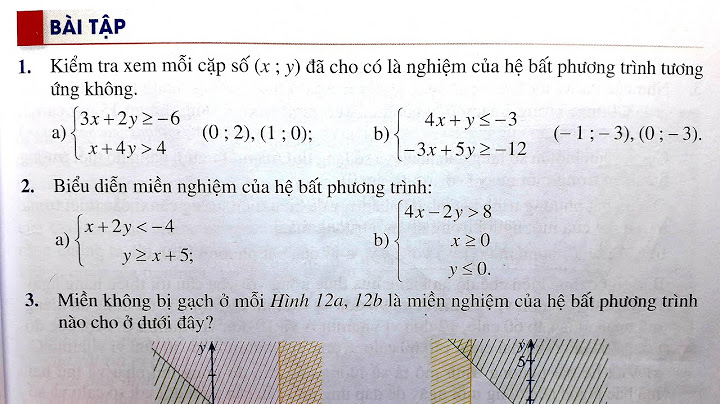When it comes to doing laundry, everyone wants a washing machine that is both efficient and cost-effective. With a plethora of options available, it can be difficult for shoppers to make an informed choice about which washer to buy. It’s important to consider both the pros and cons of top-load vs front-load washing machines before committing to a purchase. That’s why we’ve put together this article, so you have all the information you need at your fingertips! We’ll break down both the advantages and disadvantages of each type of washing machine. Show
By the end of this article, you’ll be ready to make a decision that fits both your lifestyle and budget. So don’t worry – you’re in good hands! Let’s explore the pros and cons of top-load vs front-load washing machines together and get one step closer to finding the perfect appliance for your home. Advantages and disadvantagesAdvantages of Front-load washers
Disadvantages of Front-load washers
Advantages of Top-load washers
Disadvantages of Front-load washers
Cost ConsiderationsWhen it comes to cost considerations, the differences between top-load and front-load washing machines can be quite significant. Generally speaking, front-loading machines tend to cost more than their top-loading counterparts; this is due to their larger capacity drum, as well as the addition of digital controls and other features. That said, when taking into account the total cost of ownership over time, front-loaders can often be more cost-efficient due to their energy efficiency ratings. Front-loading machines typically use less water and have shorter wash cycles compared to top-loaders; this means they use less electricity and detergent overall, which can save you money in the long run. Of course, if you’re just looking for a machine with a good price tag up front without considering its energy efficiency rating or cycle times, then a top-loader may be more suitable for your needs.  So while both types of machines come with different price points depending on features and size, it’s important to consider how much you’ll be spending over the lifetime of ownership too. Weighing up all these elements—price tag versus energy efficiency—will help you determine which type of machine is best for your budget in the long term. Water UsageWhen it comes to water usage, front-loaders generally use less water than top-loaders, as they rely on gravity to fill the drum with water and then rinse out the clothes. As a result, front-loaders tend to have lower water consumption rates than their top-loading counterparts. Furthermore, many modern front-loaders come with built-in auto-dispensing features which can help reduce detergent usage and consequently save you money in the long run. All in all, front-loaders generally offer greater potential for savings due to their lower water consumption rates. With this in mind, it may be worth considering a front-loader if you’re looking for a machine that will help you save on your utility bills while still providing an efficient cleaning. Capacity And Size OptionsWhen it comes to capacity and size options, both types of washing machines offer a wide range of choices. From apartment-friendly sized capacities to large family capacities, there is something for everyone within both types. Here are a few of the most popular options: First, large-capacity top-loaders are ideal for large households that have lots of laundry to do. These machines are usually more spacious than their front-loading counterparts, allowing you to do bigger loads in one go. However, they may take up more space in your laundry room or closet due to their size. Second, high-capacity front-loaders are great if you want the highest level of efficiency and performance from your washer. Generally speaking, these machines offer faster spin speeds which can help reduce drying times and energy costs. Additionally, they tend to come with more advanced features such as water temperature control and steam cycle settings which can further enhance cleaning performance while saving time and effort on your part. No matter what type of washer you choose, understanding the different capacity options available will help ensure that you get the right machine for your needs and budget. With this in mind, it’s important to carefully weigh all factors before making any decisions about which type of washer is best suited for you. Cleaning PerformanceWhen it comes to the overall cleaning performance of top-load and front-load washing machines, there are some key differences that you should consider. Top-loaders tend to handle heavier loads without vibration. Additionally, they can usually handle heavier fabrics like jeans and towels better than a front-loader. However, front-loaders are more efficient when it comes to stain removal and fabric care. Both types of machines will ensure your clothes look great after each wash. However, if you’re concerned about maintaining the vibrancy of your garments for longer periods of time, then a front-loader may be the better option due to its gentler cycle options. In terms of overall washing results and effectiveness for washing clothes, both types of machines offer excellent results; however, if you’re looking for more precise water temperature control then opt for a front-loading model which typically offers more specific setting options. Noise LevelWhen it comes to the noise level of top-load and front-load washing machines, there are some distinct differences. Top-loads have a reputation for being slightly louder than their front-loading counterparts, but this doesn’t mean they’re always the loudest option. Many newer models of top-loads come with sound dampening technology that reduces the volume of their operation. Meanwhile, standard front-loaders tend to be quiet, even during spin cycles. However, front-load washing machines tend to vibrate more than top-load machines, so if they aren’t placed on anti-vibration pads, they may end up making more noise. Overall, both types of washers can offer excellent performance while still keeping sound levels in check. It all depends on what type of washing machine best fits your needs and lifestyle! The important thing is to find one that will work well for you while still keeping noise levels down as much as possible. That way, you can enjoy a peaceful home environment with minimal disruption from your washing machine! ConclusionWhen it comes to choosing between top-load and front-load washing machines, there are pros and cons to consider. Ultimately, it’s important to choose a machine that will work best for your family’s needs. No matter which type of washing machine you choose in the end, doing some research beforehand and understanding what features each have to offer will benefit you in the long run! Have questions that weren’t answered by this guide? Check out our blog for tons of thorough information about every kind of appliance in your home! Hi! I’m Matt H., and I’m thrilled to be your guide through the world of appliance repair with over 25 years of invaluable experience in the industry. From the early days of my career, I have been deeply passionate about appliances and their inner workings. Over the years, I’ve seen it all – from vintage models to the latest cutting-edge technology – and I’ve dedicated myself to mastering the art of repair. With a toolbox in one hand and a wealth of knowledge in the other, I’ve tackled every challenge that has come my way, learning and growing with each repair. Join me as we dive into the intricacies of appliance repair. From step-by-step repair guides to explanations of common problems and their solutions, I’ll be here to simplify the repair process and empower you with the knowledge you need to keep your appliances running smoothly. Feel free to explore our blog, ask questions, and leave comments – this platform is a space for learning, sharing, and growing together. Let’s work together to ensure that your appliances continue to serve you for years to come. Thank you for joining me on this journey, and I look forward to being your go-to resource for all things related to appliance repair! Why are front load washing machines heavier than top load?Front loaders are heavier than top loaders because they need a heavy weight to help keep them balanced. Unlike top loaders, you often can't stop them to add extra washing once the cycle has run for more than a few minutes, or to retrieve something that's inadvertently ended up in there. Why are front load washing machines so heavy?Motor and counterweight If we take a look under the washing machine, you'll see what makes it so heavy. Yes, that is in fact a block of concrete in the picture above. The concrete is there to balance the equally heavy electric motor, which drives a very heavy gearbox that is attached to the steel inner tub. What is the disadvantage of front load washing machine?Front load washers can require more maintenance than top load washers. You can't always put clothes in mid-cycle, as the door locks to prevent leakage. Because it's harder for water to evaporate, front load washers may have more mold or mildew problems. Do front load washers hold more?They can clean more clothes at once. Front load washers typically have a larger drum than top load washers, and with no agitator taking up space, they can handle more laundry—between 15-20 pounds of laundry in 4.5 cubic feet of space. That means that more laundry gets cleaned in fewer loads! |




















